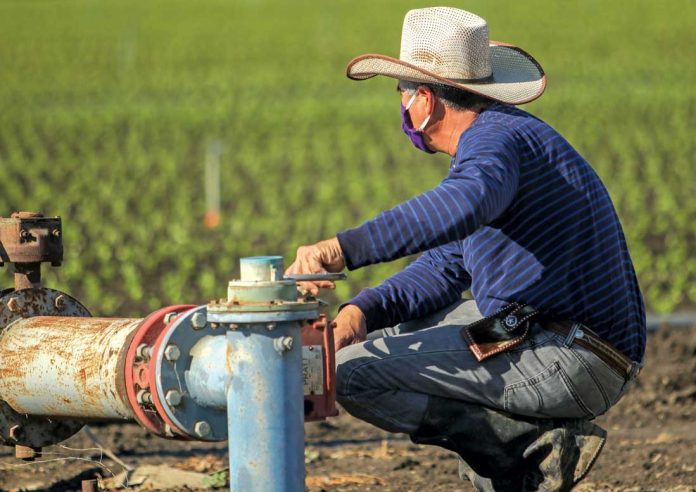
Two state assemblymembers on Tuesday announced a new $3 billion bond measure that aims to spur Covid-19 economic recovery while combating climate change and food insecurity.
Assemblymembers Robert Rivas, D-Hollister, and Ash Kalra, D-San Jose, announced Assembly Bill 125—the Equitable Economic Recovery, Healthy Food Access, Climate Resilient Farms and Worker Protection Bond Act.
If passed by the state Legislature, the general obligation bond would go on the November 2022 ballot for voter approval.
“It is time for a better food system in our state—one that is more resilient, more sustainable, and more just,” said Rivas, who chairs the Assembly Agriculture Committee.
This is especially true now, Rivas said, as Covid-19 exposed the “vulnerabilities and inequities” in California’s food supply and infrastructure.
Since the start of the pandemic a year ago, the number of food insecure Californians increased by 2.1 million, bringing the total to 6.4 million residents.
Farmers have also suffered significantly as Covid-19 shutdowns closed the doors of many restaurants and subsequently impacted food supply chains and profits.
“Farmworkers, many of whom live in overcrowded conditions, have been especially vulnerable to contract and Covid-19,” Kalra said.
Kalra pointed to a study by Monterey County that found farmworkers were three times more likely to contract Covid-19.
So Kalra and Rivas, who were joined by a broad coalition of agriculture, labor, food and environmental advocates, are pushing for major investments to transform the state’s food system by supporting farmworkers, providing more access to healthy food for state residents and promoting healthy, sustainable agricultural practices by farmers.
“We are now finally beginning to emerge from this crisis, but when it comes to our food system, we cannot go back to the way things were,” Rivas said. “We need to ensure that our food system stays healthy, especially healthy in a crisis.”
The bond seeks to change the state’s food system in four major ways.
First, it would invest millions of dollars in food processing, distribution and market infrastructure to increase capacity for emergency food distribution across California.
Second, it would invest millions to protect farm and food system workers. The bond would allocate $400 million for farmworker housing units, $100 million to ensure clean and safe drinking water access for farmworkers and their families and $25 million in personal protective equipment like N95 masks, among many other investments.
The Central California Environmental Justice Network was part of a coalition that surveyed more than 900 California farmworkers and found that most did not have any sort of personal protective equipment.
“Not even the N95 masks that are essential, especially to protect them from wildfires … that put our air quality at hazardous levels over 450 in the air quality index,” said Nayamin Martinez, director of the Central California Environmental Justice Network.
The third batch of investments would focus on combating hunger and expanding healthy food access. The proposed bill would allocate $230 million for school meals, $150 million for emergency food assistance and $100 million for senior nutrition programs.
Lastly, the bond would invest millions into promoting sustainable agriculture by allocating $120 million to improve the sustainability of agricultural lands and $125 million to improve land access for socially disadvantaged farmers and ranchers, among other investments.
“California is home to some of the most innovative farmers in the country, and they are very well positioned to help reduce climate-related pollution and Assembly Bill 125 will do just that,” said Jeanne Merrill, policy director of the California Climate and Agriculture Network.
She said the bond would invest in “a broad set of strategies” including efforts to reduce wildfire risks as well as fund compost infrastructure to divert organic waste from landfills and transform it into “valuable soil-building organic fertilizer.”
A full breakdown of the proposed funding can be found at https://a30.asmdc.org/press-releases/20210316-asm-robert-rivas-and-coalition-agriculture-food-and-environmental-advocates.








